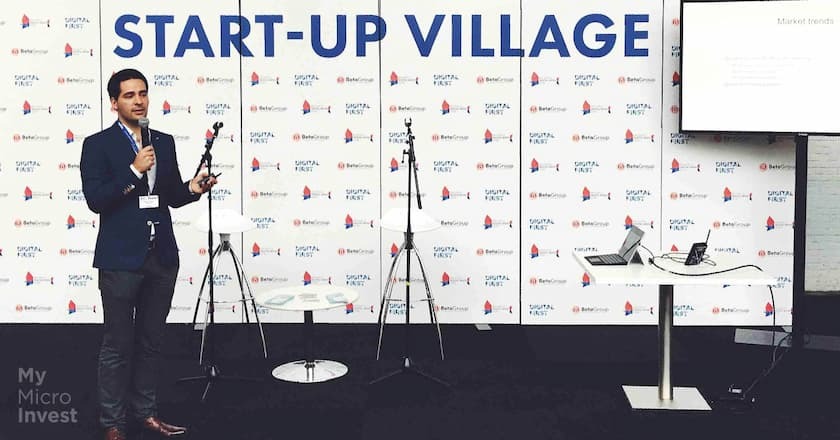
We’re starting a new blog series, providing interviews with our staff to show the people behind the platform.
Our first edition is with Peter De Decker, a business analyst on our asset management team. Read on to learn what he does to support our crowdfunding campaigns.
Let’s start by telling us who you are and what you do
My name is Peter De Decker and I am a business analyst at MyMicroInvest. That means on a day-to-day basis I'm in contact with entrepreneurs to prepare their crowdfunding campaigns.
A big part of crowdfunding is preparation. I check that all the information the entrepreneurs have provided for our crowd is correct, and that there is a realistic business case.
There are couple of different approaches required. First, there is a legal analysis, to confirm the status of the business and the contracts that entrepreneur has signed in the past. Then we see if there are particular risks for the crowd or for the entrepreneur himself. There is also a big part of the analysis that is related to financial information, we look at the historical and forecasted figures. For example, we check the use of funds to prevent the crowd from reimbursing short-term debts and we verify that the financial plan has been modelled correctly. We however do not challenge the assumptions and subsequently do not negotiate the valuation, as we consider it not to be our role. We count on the professional investor for confirmation of the terms.
We call this entire process “fact checking” (or “sanity check”), because we check the facts and because we benchmark the information with our quality standards. We occasionally discover things that the entrepreneur is not aware of, specific issues that we see, so this is not always the easiest part of crowdfunding for an entrepreneur. It can be like an audit, but it's definitely a learning experience. When we validate the fact checking process, we inform the entrepreneur about our investment conditions and we communicate what we discover, including the risks, if any.
There are always two people working on a project: one for the legal perspective and one for the financial one. We report to our manager and have a discussion about the merits to enable them to make an informed decision. The conditions we develop based on the analysis really depend on the individual business, for instance if there should be a professional investor, and how much that amount should be, which corresponds to our calculated financial needs, valuation and projections.
This is my daily job, to look into this information, and it typically takes 2-3 weeks to fully analyse a business. When this process is finished, we can give a “green light” to the entrepreneur and to our marketing team to prepare the campaign.
There is also a second group of entrepreneurs that I analyse, and that is related to our investment fund Inventures II. Inventures II is a venture capital fund managed by MyMicroInvest, that focuses on the UN Sustainable Development Goals. So if the business fits into the guidelines of Inventures II, we can take the analysis a step further. We challenge the entrepreneur if the SDGs are embedded in their DNA and perform a full analysis on the market potential.
Tell me about the other part of your job, I know you give presentations on occasion
I regularly speak at events to explain the concept of MyMicroInvest and the place that crowdfunding takes in the financial ecosystem.
Entrepreneurs have to take a decision when they start a business, on how they will obtain their funding. They can either do it with their own funds, be self-funded, but most entrepreneurs can't do this and they have to look at other options. A traditional option is to find funds through business angels: this has advantages and disadvantages.
I typically explain how crowdfunding can be combined with other funding in the market, what we call “co-investing”, and what we apply at MyMicroInvest.
Do you have any advice for new investors?
I would certainly advise people to read the information they get from the entrepreneur and to try to challenge it. Apply common sense and try to look on the internet to see if the information available is validated.
It can take time to make the decision to invest in a company. It can be important to hear different opinions. I know from experience that understanding a new business takes time and there is better to balance the positives and the negatives. And of course don’t forget to consider your own risk threshold and diversify your investments.
Do you have any advice for new entrepreneurs?
The journey of an entrepreneur goes through a minefield full of pitfalls, there is a lot of work to do and a lot of assumptions which must be validated to make progress. Therefore, a team has more chances to succeed than an individual. I believe entrepreneurs that are methodical and systematic to execute their work and who learn systematically are more successful. Be diligent and persevere!